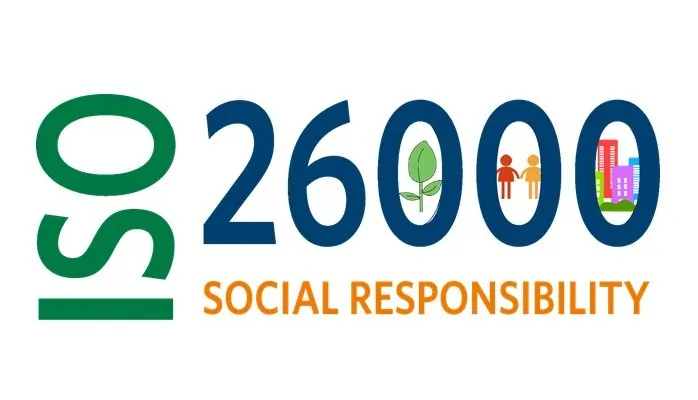ISO 26000: The Social Responsibility Standard
As businesses have become more aware of their impact on society and the environment, there has been an increasing emphasis on social responsibility. In response to this, the International Organization for Standardization (ISO) has developed a series of standards to help businesses demonstrate their commitment to social responsibility. These standards are known as the ISO 26000 series and provide a framework for businesses to identify and address their impact on society and the environment. In this article, we will explore the ISO 26000 series and its importance for businesses.

ISO 26000: Overview
ISO 26000 is a standard that provides guidelines for social responsibility. It was developed by ISO to provide a framework for businesses to identify and address their impact on society and the environment. The standard covers seven core subjects: organizational governance, human rights, labor practices, the environment, fair operating practices, consumer issues, and community involvement and development.
ISO 26000 is designed to be flexible and adaptable, and it can be applied to businesses of all sizes and in all sectors. The standard is not intended to be used for certification purposes, but rather to provide guidance for businesses to develop their own social responsibility strategies.
Organizational Governance
The first core subject of ISO 26000 is organizational governance. This covers issues such as accountability, transparency, and stakeholder engagement. The standard emphasizes the importance of establishing clear policies and procedures for social responsibility and ensuring that these are communicated to all stakeholders. It also encourages businesses to engage with stakeholders, including employees, customers, suppliers, and the wider community, to understand their expectations and needs.
Human Rights
The second core subject of ISO 26000 is human rights. This covers issues such as non-discrimination, labor practices, and the rights of indigenous peoples. The standard emphasizes the importance of respecting human rights and ensuring that businesses do not contribute to or benefit from human rights abuses. It also encourages businesses to identify and address any human rights risks within their operations and supply chains.
Labor Practices
The third core subject of ISO 26000 is labor practices. This covers issues such as employment practices, working conditions, and employee development. The standard emphasizes the importance of ensuring fair and equal treatment for all employees, promoting health and safety in the workplace, and providing opportunities for employee development and training.
The Environment
The fourth core subject of ISO 26000 is the environment. This covers issues such as climate change, biodiversity, and waste management. The standard emphasizes the importance of reducing environmental impacts and promoting sustainable practices. It encourages businesses to identify and address environmental risks and opportunities within their operations and supply chains.
Fair Operating Practices
The fifth core subject of ISO 26000 is fair operating practices. This covers issues such as corruption, responsible marketing, and fair competition. The standard emphasizes the importance of promoting ethical behavior and transparency in business operations. It encourages businesses to establish clear policies and procedures for ethical behavior and to ensure that these are communicated to all stakeholders.
Consumer Issues
The sixth core subject of ISO 26000 is consumer issues. This covers issues such as product safety, privacy, and fair marketing. The standard emphasizes the importance of ensuring that products and services meet relevant safety standards and do not pose a risk to consumers. It also encourages businesses to communicate openly and honestly with consumers about their products and services (1).
Community Involvement and Development
The seventh and final core subject of ISO 26000 is community involvement and development. This covers issues such as community engagement, philanthropy, and social investment. The standard emphasizes the importance of building positive relationships with communities and investing in their development. It encourages businesses to identify and address community needs and to work collaboratively with other organizations to achieve common goals.
Importance of ISO 26000
The ISO 26000 series is important for businesses for several reasons. First, it provides a common language and framework for social responsibility that can be applied across industries and geographic regions. This helps to promote consistency and transparency in social responsibility practices and facilitates comparison and benchmarking between organizations.
Second, the standard encourages organizations to adopt a proactive and strategic approach to social responsibility, rather than just reacting to compliance requirements or stakeholder pressure. This can lead to long-term benefits for the organization and its stakeholders, such as improved reputation, increased stakeholder trust, and enhanced social and environmental performance.
Third, the ISO 26000 standard promotes collaboration and stakeholder engagement, which can help organizations to identify and prioritize social responsibility issues and develop more effective solutions. By involving a diverse range of stakeholders, including employees, customers, suppliers, NGOs, and local communities, organizations can gain a better understanding of the social and environmental impacts of their operations and the needs and expectations of their stakeholders. This can lead to more informed decision-making and more effective solutions to social responsibility challenges.
Finally, the ISO 26000 standard can help organizations to integrate social responsibility into their overall business strategy and operations, rather than treating it as a separate and isolated function. By aligning social responsibility with other business objectives, organizations can leverage their social and environmental performance to create value for their stakeholders and maintain a competitive advantage.
However, it is important to note that implementing the ISO 26000 standard is not a guarantee of social responsibility or sustainability. The standard is intended as a guidance document, and it is up to each organization to interpret and apply the principles and guidelines in a way that is appropriate for their specific context and circumstances. Furthermore, achieving social responsibility is an ongoing process, and organizations must continually monitor and evaluate their performance and adapt their strategies as needed to ensure that they are meeting their social and environmental responsibilities.
Conclusion
In conclusion, the ISO 26000 standard provides a valuable framework for organizations to develop and implement a social responsibility strategy that is aligned with their overall business objectives and stakeholder needs. By adopting a proactive and collaborative approach to social responsibility, organizations can build a positive reputation, gain stakeholder trust, and create long-term value for their stakeholders and society as a whole.


